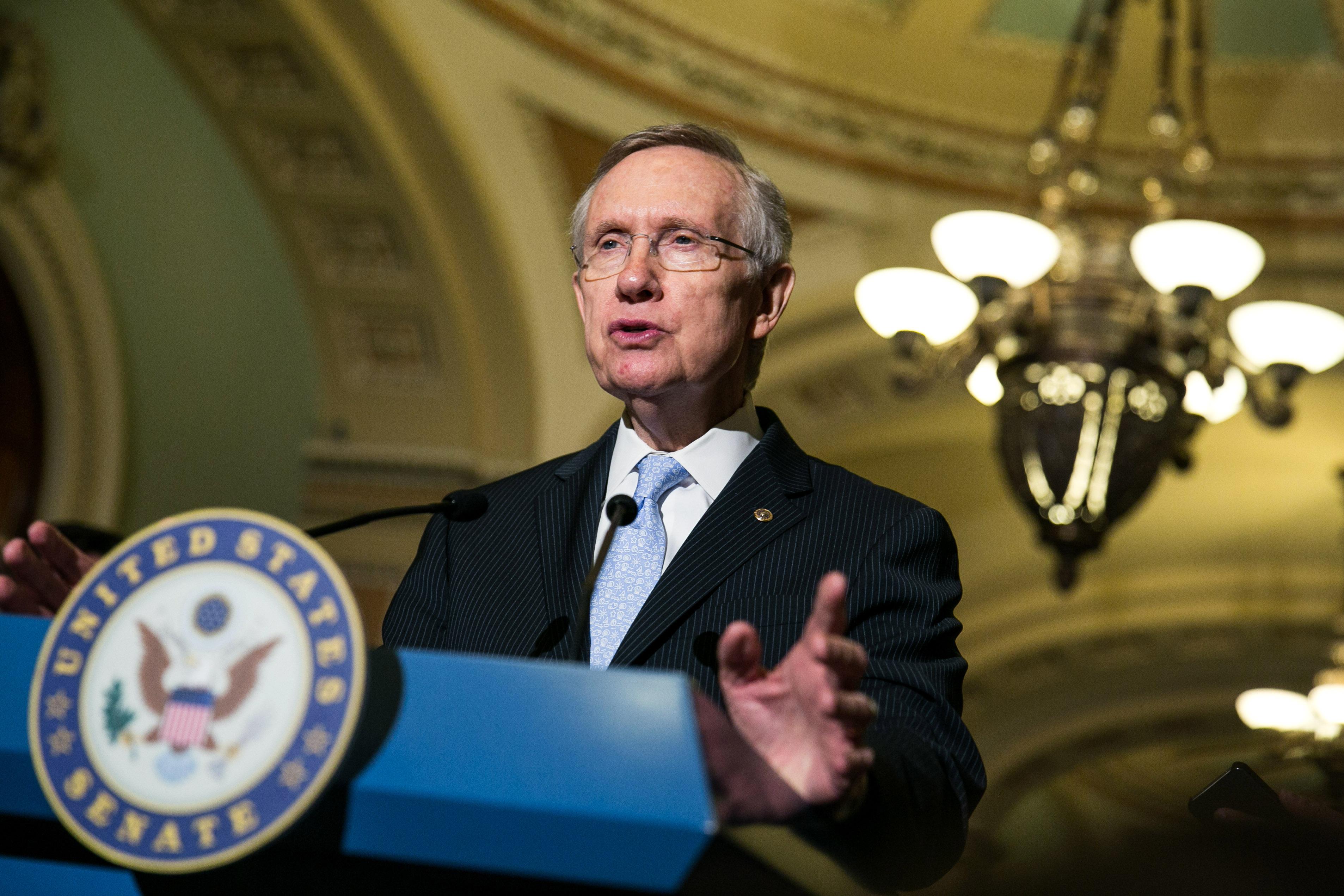Two weeks ago the Senate finished its big bipartisan goal of the year—the passage of a comprehensive immigration bill. Last week Democrats coaxed their top candidate, Alison Lundergan Grimes, into a race against Sen. Mitch McConnell. That made the party more confident that a tough 2014 campaign would likely end with another Democratic majority in the Senate.
That’s the setup for this week’s public battle over filibuster reform. It broke out again this morning on the Senate floor, when the party leaders used their pro forma speeches to tear into each other.
“The Senate has confirmed every single one of the Cabinet nominees that has been brought up for a vote this year—every single one,” said Mitch McConnell. “The president has gotten nearly three times as many judges confirmed at this point in his second term as President Bush. Here’s the point. What this whole so-called crisis boils down to—what it all comes down to—are three nominees that the president unlawfully appointed, as confirmed by the courts. And one of those nominees had been held up by inaction over at the White House related to structural reforms that the administration—and even the nominee himself—now say they are willing to work with us on.”
Other Republicans joined McConnell with data, quoting Congressional Research Service reports to prove that there wasn’t really a problem with confirming new nominees. That wasn’t what concerned Harry Reid. Republicans were shouting about the “unconstitutionality” of Obama’s recess appointees (for now, they’re backed up by the D.C. circuit, pending a Supreme Court ruling) and refusing to confirm National Labor Relations Board members or confirm Richard Cordray to lead the Consumer Financial Protection Bureau. “I’m so tired of hearing this, tweaking,” said Reid, deriding the Republican promise that Cordray would be confirmed if the CFPB’s budget were handed over to Congress. He didn’t trust them, and he didn’t need to.
“It’s worth talking a little bit here about how the Republican leader complains the American people just don’t like Congress,” said Reid. “Well, there’s a reason for that, and the Republican caucus deserves most of the blame … they don’t like Congress because of gridlock and not getting anything done. Is that our fault? No.”
The debate shifted a bit when Republicans who occasionally cross over to vote with Democrats offered to break bread. Mississippi Sen. Roger Wicker asked whether Democrats would meet in the Old Senate Chamber, a short walk from the current chamber, to see if they could hash this out. Reid is meeting with Democrats today about a filibuster reform strategy, and talking about this on Monday at the Center for American Progress. He was not moved.
But this debate isn’t necessarily about forcing through a real filibuster reform. Democrats jangle these chains from time to time to spook Republicans into a vote on a nominee they’re holding up. He actually got McConnell closer to a vote—in his floor speech, McConnell said the nominees to run the EPA and Labor “already have enough votes to clear a 60-vote hurdle.”
